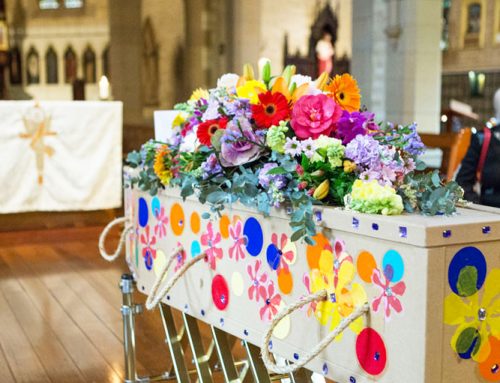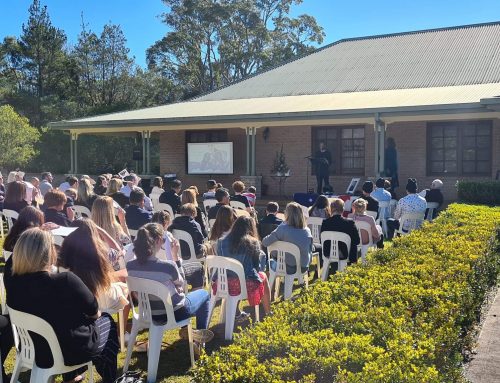Kidz on the Coast – Feb/March 2014 www.kidzonthecoast.com.au
In our travels through life and love every one of us will encounter set-backs, disappointments and even tragedies. And the longer we live, the more exposure we will have to changes, loss and grief. It is how we navigate through them that is important.
Everyone at some point in their life will suffer grief and quite possibly life altering, debilitating, long lasting grief. Some research indicates it can typically take 5-8years for a widower to regain a sense of wellbeing and for some, never. The cost of suffering grief is staggering. Joy, health, vitality, relationships, creativity, productivity, clarity and prosperity all suffer. However life carries on with or without your engagement.
Grief is absolutely normal, essential and healthy. It may be a lifelong process, but it should not stop you living your life. That old soothing phrase “it takes time” and “time heals all wounds” is misguided and wrong. Feeling happy, calm and at peace is not a luxury or something that you must wait years for to return, but an essential and necessity in life, right now. How can you make good decisions, care for yourself and others, be productive and healthy if you are in a constant state of upset, fear, grief, anxiety, heartbreak and overwhelm?
When my mother declared to me three years after the death of the love of her life, that she felt complete with her grieving, even I was staggered. Travelling with my mum as she actively processed and worked through her grieving was an amazing thing to share and witness. Eight years on this year, my mum is the happiest and healthiest and most creative she has ever been in her life. She is truly, deeply happy. And she worked on it every, single day.
Whilst my mothers’ journey has been one of transcending her grief, sharing my best friend’s journey of the death and dying of her son, my godson, has been a different experience. The death of a child is an irrecoverable loss. My friend’s experience demonstrates that whilst you don’t ever ‘get over it’; you have a choice about how you go ‘through’ it. There were days for her when she did not want to live and it truly felt like a conscious choice to even breathe. Time has not healed her, but counselling, a loving & supportive community, actively cultivating skills for managing her emotions and developing habits to focus on joy, health and positivity have significantly contributed to her being able to maintain wellbeing. She has continued to nurture her marriage and family, bring forth new life with two more children, maintain her health and feel purposeful in this world.
For my mother and my friend, however, they are the exception, not the norm. Unresolved grief is epidemic in modern life. It is a vicious cycle, with the causes of grief, such as divorce, disease, loss of job, depression, bankruptcy, premature aging and death, feeding a closed loop system by also becoming the effects of sustained grief. The renowned American Grief Coach, Aurora Winter, cites from the Wall St Journal, that the workplace cost alone of grief in the US is $75 billion a year due to lost productivity, accidents and absenteeism. Chronic stress from grief can prematurely age your cells by a decade. It can even trigger disease and death.
The cost of grief is too high to ignore and leave for time to heal. It is not time that heals, but what you do in that time. Healing requires intention and action. It requires a specific set of skills and guidance and people around you. Where and how does that happen? Unfortunately, the most common experience for those grieving is a lack of available resources, support and knowledge. Well-meaning friends can only provide so much and then their lives will again take priority. As a society, we have not been consciously taught the skills to recognise and release our emotions; to master our emotional state; or how to make the conscious changes required to rebuild anew. In my grief coaching work I support and guide my clients to learn how to continue to live, love and laugh through loss.
There have been many studies and research findings in the last decade in positive psychologies that indicate that happiness is an inside job. Life circumstances do not determine your happiness, you do. In fact in one study by Dr David Lykken of 4000 identical twins over two decades, concluded that less than 10% of your happiness is due to life circumstance, with 50% being habitual and genetic, and a whacking 40% of your happiness could be immediately and voluntarily controlled by asking the right questions, shifting mindset & perspective and changing habits towards a happier way of being.
That’s right, 40% of your happiness is variable and controllable right here, right now, with how you perceive and think about your life. Quite simply, you can double your happiness by mastering your thoughts, habits and emotions. Therefore, even in the midst of grief, you can be empowered to significantly shift your happiness and sense of peace and control.
Some things you can do immediately to begin shifting your thinking and cultivating positive habits include:
- Bring yourself into the present moment (not the past or future) – for eg. breathing & meditation, being in nature, exercising or doing something you love (painting, singing, dancing etc)
- Practice your gratitudes and find the beautiful – train your brain to look for the good and see beauty
- Challenge your ‘truths’ and thoughts that bring you suffering. Be willing to see a bigger, different and even contrary perspective. Create a new ‘truth’ that can soothe and even empower you.
- Surround yourself with positive, loving people.
- For the death of a loved one, continue to talk to them, include them in your life, create a new ‘heart-based’ relationship with them.
- Find a spiritual community and connect to God, Higher Self, Source, Creator, whomever that is for you and pray. Return to the gentle embrace of a loving, supportive Universe.
Finding peace and clarity in the midst of grief is possible. Experiencing sustained times of happiness, joy, empowerment and calm is entirely possible. Bringing yourself back to a place of peace when grief triggers you and you plummet down the emotional spiral, straight back into those tough emotions of anger, fear, guilt, overwhelm and shut down, is a skill you can learn and have others around you support you with. You don’t have to suffer unnecessarily or alone. You can still grieve AND live, love and laugh.
Sarah Tolmie is a coach and therapist assisting people to navigate, grow and heal through all their life & love transitions. Her practice focuses on love & relationships, families & children; life success & fulfilment, death & grief. As a certified Master NLP Practitioner & Coach, Sarah specialises in positive change techniques including Neuro Linguistic Programming (NLP), Time Line Therapy and Hypnotherapy. Sarah is also a Life & Love Celebrant, and Pastoral Care Practitioner, creating profound and meaningful ceremonies for all life & love events. Sarah has an academic background in Social Anthropology and a Masters in Communication. Sarah is also a Laughter Yoga Leader. You can visit her websites www.lifeandlovecoaching.com and www.lifeandlove.com or find her on Facebook.






